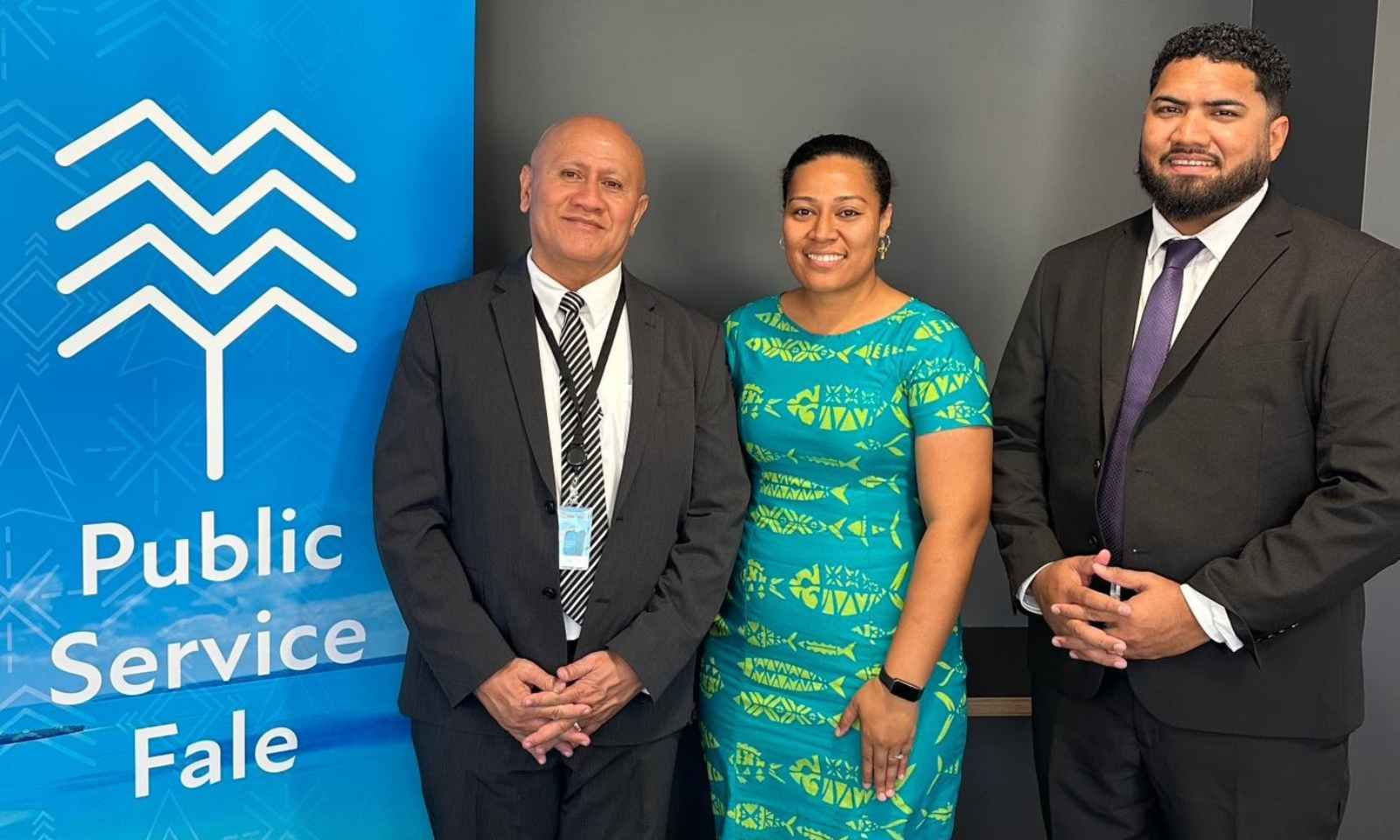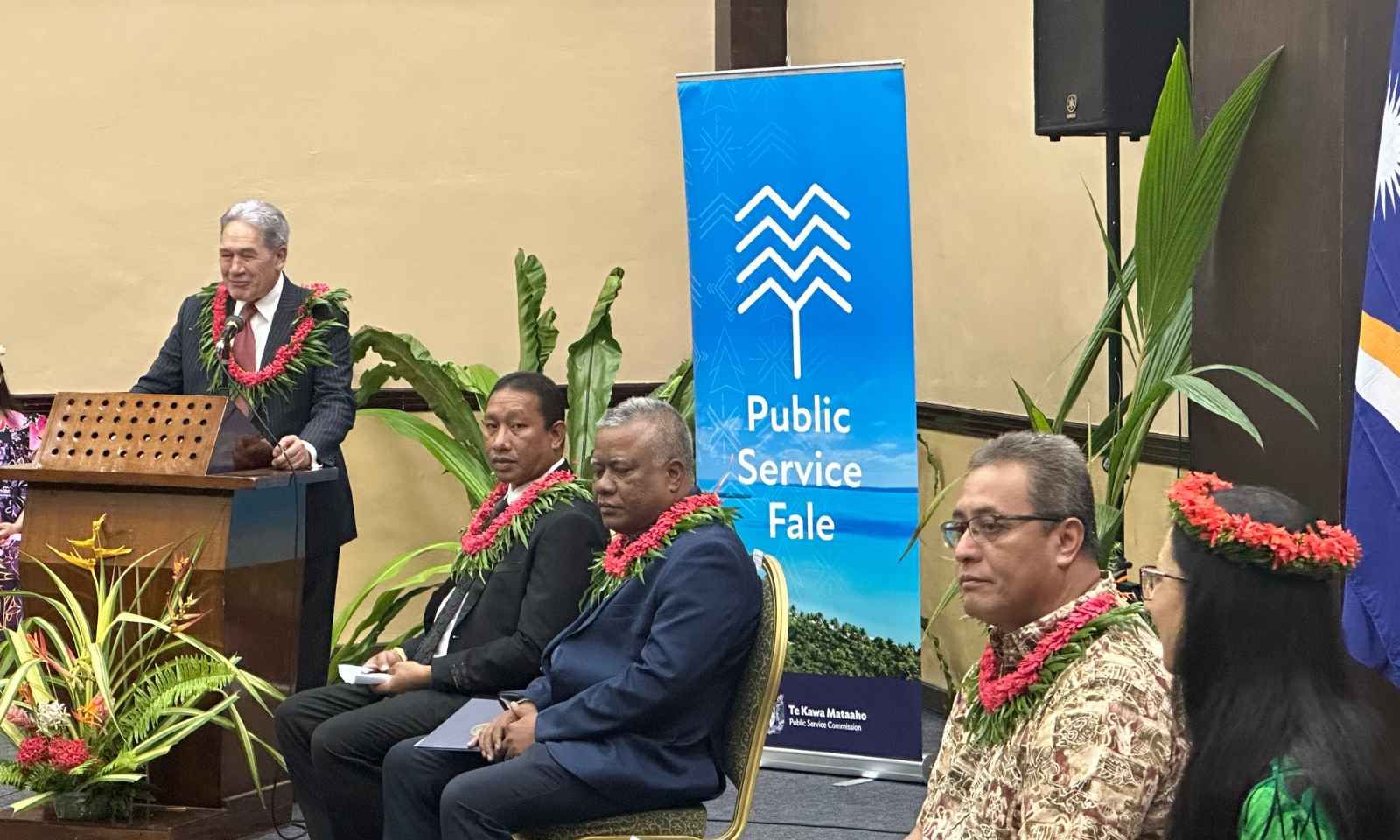

Public Service Association national secretary Duane Leo (left) and Deputy Commissioner for the Public Service Fale Tania Ott (right).
Photo/Supplied
NZ’s Pacific influence threatened by major cuts to the Public Service Fale – Union
A Wellington-based centre that supports regional public sector leadership and governance, faces cuts with nearly half its workforce reduced and funding slashed by 35 per cent.
Cuts to the Public Service Fale (PSF) have left nearly half of its workforce in peril, raising concerns over New Zealand’s credibility in the Pacific.
Deputy Commissioner for the PSF Tania Ott says the restructure aims to sharpen the organisation’s focus and deliver value for money.
But Duane Leo, the National Secretary of PSA, says the decision to reduce funding for the PSF, which has been supporting Pacific Public Service Commissioners since 2020, is devastating.
PSF was set up as a Pacific-led centre to strengthen leadership and governance across the region’s public services.
It provides advice, fosters collaboration, and is governed by commissioners representing Melanesia, Micronesia and Polynesia.
Sixteen Pacific nations and territories are members, with support from Australia and New Zealand.
The Fale is based at the Public Service Commission in Wellington, which provides oversight and support, and funded by the Ministry of Foreign Affairs and Trade.
Leo says the staffing proposal that was put to PSA members this month has been finalised, with application for roles and redundancies closing yesterday.
"But we are still very much concerned about this change and the decisions that have been made," he says.
Listen to Duane Leo's full interview below.
"From our member's perspective and from an overview, the lack of consultation with the wider Pacific stakeholders, the key customers of the Fale and the poor analysis of how the changes will impact the work is quite concerning to us.”
In August, it was announced that the PSF would face a 35 per cent funding cut, leading to a nearly 50-per cent reduction in staff, from 17 to just nine roles.
Ott says the new structure is set to be operational by November, focusing on impactful initiatives that align with the government’s priorities in the region.
“The new structure will strengthen the Fale’s position in the Pacific with a focus on high-impact projects that deliver value for money for taxpayers,” Ott says.
“This is a difficult time for Fale staff, but the change proposal is unavoidable. Like all agencies, the Fale is having to operate in fiscally tight times.”
In May, an independent evaluation by MartinJenkins found that New Zealand’s investment in the PSF has delivered early results, with strong foundations laid, high satisfaction from Pacific Commissioners, and emerging examples of value.

Members of the Sāmoa Law Reform Commission visited the Public Service Fale in Wellington in July. Photo/Supplied
The report highlights the strategic importance of continued support to strengthen Pacific public institutions, noting this underpins security, democracy and prosperity.
“Without New Zealand’s investment to strengthen Pacific public sector governance, Pacific countries are likely to look to others for support in this area,” the report says.
The evaluation found the PSF has greatly improved its responsiveness to country needs since the mid-term review, earning high satisfaction from Pacific Commissioners, though managing growing bilateral demands sustainably remains a key challenge.
The report also notes that the PSF has begun strengthening communication and collaboration with stakeholders, including MFAT and regional partners, through new plans, focal points, and joint initiatives, though improvements will take time to embed and consistency across countries remains a challenge.
As the future of the PSF remains uncertain, Leo warns that more cuts to Pacific services could follow.
This comes after almost $36 million in cuts to the Ministry for Pacific Peoples (MPP) since last year, resulting in the termination of programmes such as Tupu Aotearoa, which supports Pacific people in finding employment.

Subregional Public Service Fale meetings hosted in the Republic of the Marshall Islands last year, opened by New Zealand Foreign Affairs Minister Winston Peters. Photo/PMN News/Ala Vailala
The Public Service Commission has not ruled out the possibility of merging small ministries, like the MPP.
“The voice that Pasifika people have, the work that's been done in the wider Pacific is under threat if these agencies are basically just folded up and put into larger organisations,” Leo says.
“Where's the Pacific voice? Where's the recognition of Pasifika people in New Zealand?”


